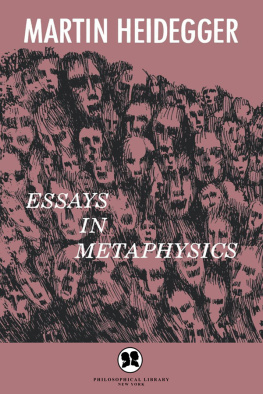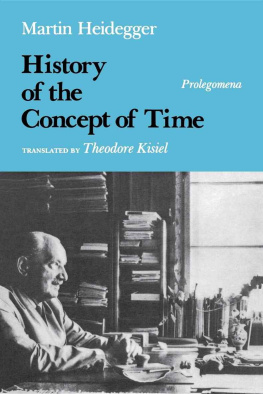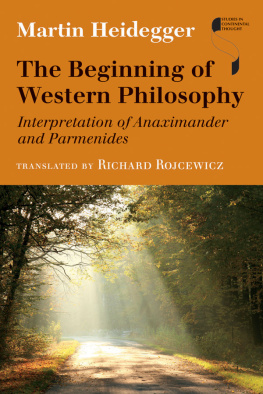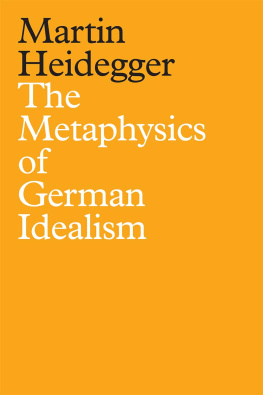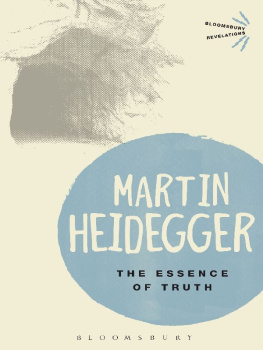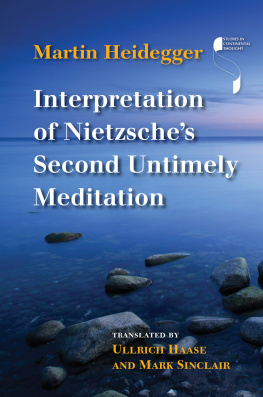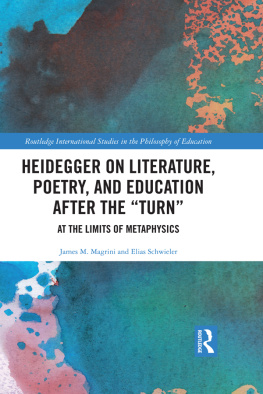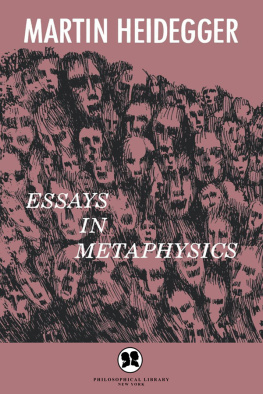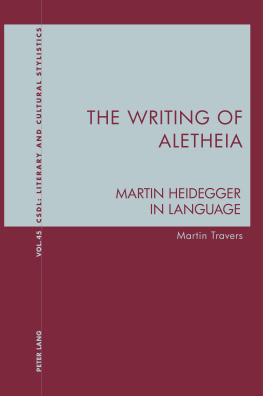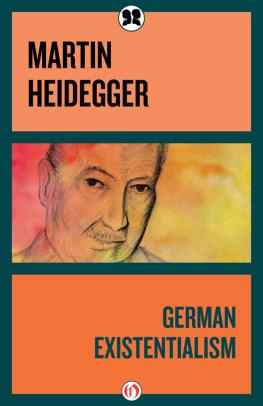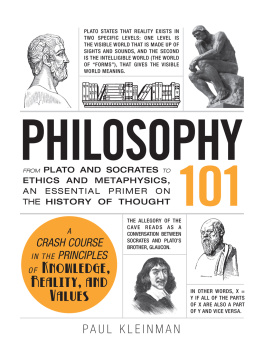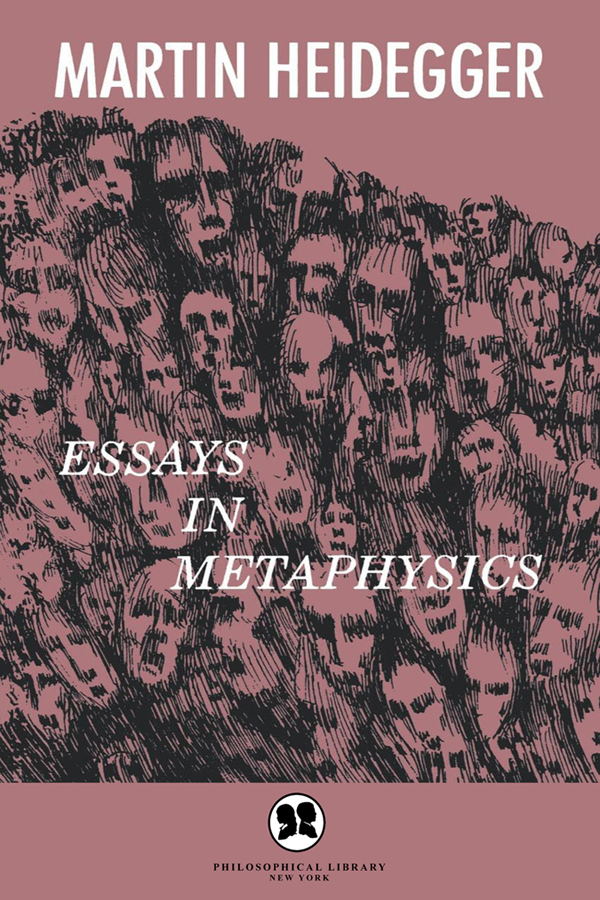Introduction
There is scarce need to comment on the importance of the two lectures translated here which were published in 1957 under the title of Identitt und Differenz. In them Heidegger does not go into all the ramifications of his philosophy, and they do not answer all questions of Heideggers existentialism. Yet, even in the casual reader the impression must surely be created that here we have the ruminations of a master mind in his maturity. The sensitive and attentive reader will come away with a feeling that he now knows Heidegger, the man, the teacher, better. He will receive illuminating insights into Heideggers thinking on many a vital issue, our technological age, religion, language, history, for on all of which subjects and more besides he has touched upon here, if only epigrammatically.
Through these lectures Heidegger enables us even better to assign him a place as one of the leading figures in the history of philosophy. Always conscious of the tremendous contributions of western thinking, he seems more concise in his hints at a confirmatio and lux ex Oriente. There is no ranting against anything, which has of late become the royal sport and pastime of many professing the love of wisdom. There is no anxiety, no fear, no gloom here which settles like fallout on us when reading some of the existentialists and would-be existentialists. There is not a word of fretting, testiness and peevishness which might even be pardonable. You say the theme did not warrant it? Of course, it never does, yet how many disciples of the royal science pay attention to the warranty?
Here is wisdom charmingly, lumberingly expressed, with a little interlarding of a fairy tale, some brightly illuminating passages, such as Kant also gave us, a skating on the thin ice of etymology, quaint excursions into language not heard for decades or even centuries, a quiet acceptance of what the ground swells of Being have in store for us.
Heidegger would be difficult to understand if we did not know Plato, Parmenides, Leibniz, Spinoza, Kant, and particularly Hegel, those great landmarks on the march of idealism. Yet knowledge is not enough. As if acknowledging an ancient eastern tradition, Heidegger goes to the womb of things, beyond language to the home of speech to draw the final inspiration. Even more marvelous than that, and possibly unknown to the master himself, his very choice of words is reminiscent in the under- and overtones of such quaint words as Gestell, Gesetz, Geprge, Satz, and wesen, of an ancient and universal symbolism which certainly gives a new slant on Heideggers own power of penetrating uncommonly deeply.
Heidegger passionately seeks Being, but he seeks it through Existence, in Existence, and pursues it relentlessly to the essence of both. His logic dissolves into ontology, both into theology, and all in the Logos, the Ground. There is fluidity; his whole thought structure floats lightly on evanescent clouds of thought like those heavenly palaces in Buddhist legends, but he bids us wing ourselves in spirit up to them and waft through Being and Existence.
His allusion to forgetfulness, though based on the Greek concept, blends intothe oriental nescience, while the object of thought makes perfect analogy to vidy, which is knowledge without superciliousness, withoutexternality. One often feels that Heidegger says in one of our western languageswhat has been not-said, yet loudly and openly proclaimed in Zen.
Far from making Heidegger out to be a mystic, his endeavor to get at Being and essence is metempiric. Weaponed with the keenest of tools of absolute idealism, combined with those of semantics, he explores the involvement of man in the whole of Being, realizing full well that all these tools must be discarded or transformed. The problem is how to see the eye that sees, not the eye that is reflected. It is, indeed, the age-old quest, the basic quest of all philosophy of all the ages. Heidegger knows he is not the first and he will not be the last to intellectually penetrate the essence. But he is the most intelligible, though he is obscure himself on occasion and his disciples even feel at times that communication is breaking off.
What makes Heidegger important is his receptiveness, his sensitivity, hisability to lie at the heart of the problem and see and hear when others see andhear nothing. That is why others leap, if at all they dare, in fear and tremblingbefore an abyss into which he, like the nyavdin ofBuddhist philosophy throws himself happily, though it spells emptiness andnothingness to others, to discover in it womb what the whole of actual existence isnot and has not,the totality of which is stupendous.
Yes, the problem is one of identity and difference, and we have been blind so long because we read words, as Parmenides about the Same, but treat them, at best, with a paternalistic air as archaic. Now, at last, we understand identity, because we must seek it at the source. Difference also is clarified and its edge dulled. Metaphysics, we find, in the West was but a halfhearted attempt because we did not know how to penetrate to the essence, though we know it to be there. Heidegger makes us at home where we have been putting up so long uncomfortably and with want of grace and gratitude.
The interesting part of Heideggers philosophy is that we do not have to get rid of, shed, and repudiate any of our stupid or sage notions of which we are so proud in western history. We should never forget that we are part of Being, we are its very unfoldment. Call it destiny, but if you call it that remember you are destiny also by virtue of participation in Being. Look within.
By the same token look without if your world of technology threatens to engulf you and you call on scientists, politicians and humanitarians to pull you back from the brink. This cry to be saved, to do something before it is too late, to make undone what has been done, is the cry of immature beings who willfully made themselves strangers at home.
Similarly with God. God is in human civilization,man says so, man behaves accordingly. There are innumerable religions with and without theology. But theology has become a stereotyped, lifeless endeavor. It lacks gravity in every sense of the word, it forgets its deep anchorage in the logia. Externalization here also instead of firming in the Logos. In that ground meet science, religion, philosophy. The Ultimate, the One is in every logion and sophia as the motivating, explaining, self-revealing reality. God for Heidegger is not the god of images and of worships, he is the strength of piety, he is that which moves and in whose self-caused Being those who are attuned find rational, universal support. Heideggers God dissolves as entity, yet electrifies the Whole as divinity.

